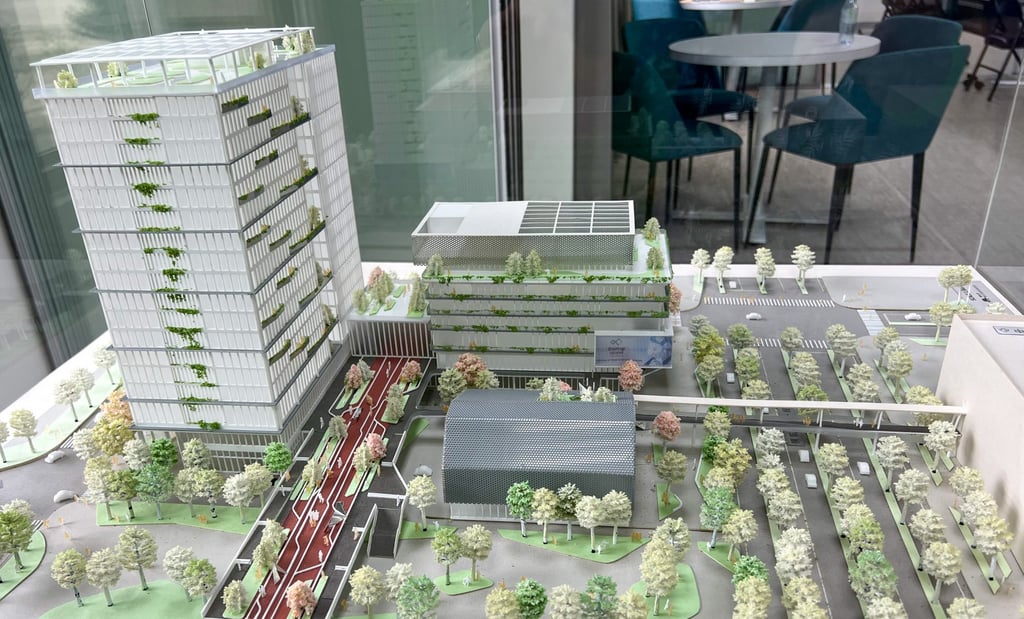Taiwan’s Asia Silicon Valley is plagued by delays and lukewarm interest, setting the project back years
- The massive hi-tech undertaking that kicked off in 2016 is way behind schedule, and analysts say prospective tenants are not that interested
- Taiwanese President Tsai Ing-wen says her government will strive this year to ‘restructure’ industry and raise spending to make it more ‘competitive’ in the long term

At the end of the first working day of 2023, two men from a Taiwanese construction crew got into an SUV and drove off. They were the last to leave a muddy work site with stacks of metal slats strewn between prefab worker housing and a four-level structure covered with scaffolding.
Just one commuter rail stop away, at the polished showroom of Eason Tsai’s office in the sprawling city of Taoyuan, detailed maps and a 3D model show an office tower designed for 40-50 hi-tech tenants – located alongside both a smaller building dubbed Startup Island and a model of the scaffold-covered structure: a would-be exhibition centre.
Tsai leads the company overseeing construction on the first third of the ambitious undertaking that has been hailed as the “Asia Silicon Valley” and billed by the government as both a major economic and innovation booster.
But construction on the project’s phase one, which was originally due to wrap up this year, now faces a delay until 2026 – hence the muddy work site. To make matters worse, analysts say prospective hi-tech tenants are not all that interested.

“What are the entities that are committed to starting in Taoyuan? It isn’t really clear,” said Kent Chong, a partner with professional services firm PwC in Taipei.